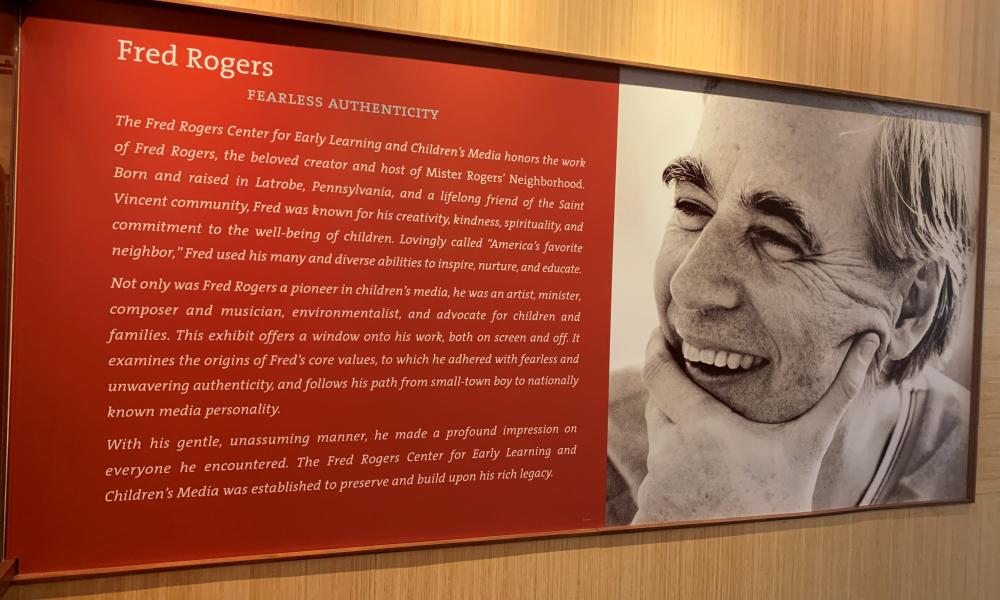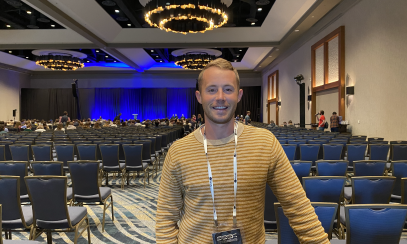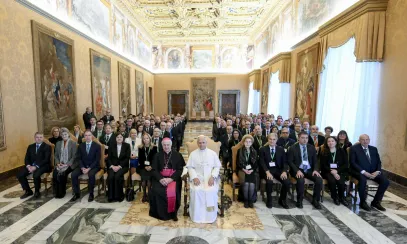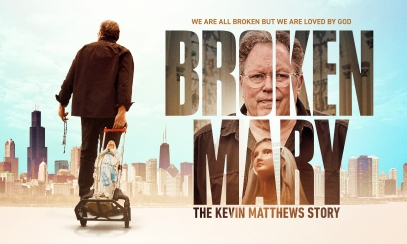
What Catholics Can Learn From Mr. Rogers
America’s Favorite Neighbor Teaches Meaningful Use of Technology
America’s Favorite Neighbor Teaches Meaningful Use of Technology
Mr. Rogers was a TV institution. He realized the good that could come from the ability to communicate on television to millions of children and adults. But he was also keenly aware of how much damage TV could cause, especially to developing minds. He was the founder of Family Communications and he cared deeply about creating strong families where children could develop in a healthy environment. He was a Presbyterian minister who recognized the connection between television, the real needs of human beings and spirituality. That’s why Notre Dame University’s McGrath Institute for Church Life suggests that Mr. Rogers is a good example for Catholics.
In 2020, McGrath received a grant from the Lily Foundation to start the Church Communications Ecology Program to help Church leaders better understand the technological changes we are experiencing in order to develop new ways to serve the real needs of the human person and evangelize the culture. I applied for and was selected for the first cohort of this Program.
This month, I was fortunate enough to join 18 other Church leaders for an immersive workshop in Pittsburgh to continue our studies in the Program. Our group included two Dominican sisters from Aquinas College in Nashville, two seminarians from Philadelphia, educators from Mercy College and the Center for Human Flourishing, Catholic school teachers and two executives from DeSales Media and the Diocese of Brooklyn. Part of our trip included two days at the Fred Rogers Center, which is located at St. Vincent, a Benedictine college in Latrobe, Pennsylvania. St. Vincent is operated by monks and is the oldest Benedictine monastery in the United States. Fred Rogers and his wife Joanne were good friends with the Archabbot of St. Vincent and were even known to vacation together. Because of this friendship, Mr. Rogers requested that his archives be located on the Catholic campus so that future generations could learn about his legacy.
Mr. Rogers showed generations how to nurture authentic human interactions that form strong healthy relationships in families and in communities.
His program showcased what human relationships look like through puppetry, real-life guests, and visits in the neighborhood. Mr. Rogers spoke slowly. He listened wholeheartedly to the children he interviewed. He gave them his full attention and in return, children spoke openly and grew in their self-awareness and understanding of the world around them.
In a media environment that celebrates 15-second Tik Tok videos, Facebook “friends”, and Twitterstorms, who carries on this legacy today? Our Church believes that the greatest commandments are to love God and to love one another as we love ourselves. The way we live gives witness to this reality and Mr. Rogers showed us how to be counter cultural. We are called to practice habits and virtues that set us apart. Through prayer, charity, discipline, patience, forgiveness, love, and understanding, we are called to rise above the noise that seeps into our lives to distract us, divide us, and discourage us.
As a Church, we can learn from Mr. Rogers that it’s essential to harness the communication tools of our time to spread the Gospel, foster unity and harmonize our environment. To do this, we must also become a prophetic voice that urges people to be vigilant. We cannot blindly accept the media technologies of our time without scrutinizing their effects on our children, families, communities, and churches. As we hear in 1Thessalonians, 5:21, “Test everything; retain what is good.”
Resource: Strengthening Family Relationships in the Presence of Technology
Teresa Peterson is the Executive Director of Communications for the Diocese of St. Petersburg
Caption: Photo of Fred Rogers at the exhibit to document his work and legacy located at the Fred Rogers Center at St. Vincent College in Latrobe, Pennsylvania.
Caption: Teresa Peterson, Executive Director of Communications, visits the Fred Rogers Center during an immersive workshop offered by Notre Dame University’s McGrath Institute for Church Life, founder of the grant-funded Church Communications Ecology Program.




